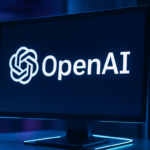Amid the rapid advancements in artificial intelligence (AI), Anthropic has introduced the Model Context Protocol (MCP), an open standard designed to improve AI systems’ functionality within enterprise environments. This announcement signifies a step forward in the integration of AI with core business operations by facilitating secure and seamless connections between AI models and business tools. This development positions AI not just as a generator of insights but as an active participant in business processes, retrieving data and executing tasks across approved systems.
Anthropic’s MCP differs from earlier methods of connecting AI systems to enterprise applications, which often required costly and time-consuming custom integration. Previously, developers needed to build separate integrations for various platforms, including Salesforce and Slack. Google (NASDAQ:GOOGL) Cloud explains that MCP simplifies this through a straightforward setup involving a host, a client, and a server.
“MCP provides a standard way to connect AI models to the tools and data they need,” said an Anthropic representative.
This approach enables companies to connect AI models to real-time data sources with ease.
What Capabilities Does MCP Offer?
Modern AI systems, while proficient at generating insights, typically lack the ability to perform actions based on live data. The introduction of MCP allows AI models to bridge this gap by securely accessing and interacting with live business data. For instance, a customer-service chatbot can transition from simply explaining procedures to executing them, such as resetting passwords, within secure environments.
MCP’s capabilities extend further, enabling AI systems to perform tasks such as data retrieval, record updating, and workflow initiation under approved security measures. Google Cloud has highlighted that MCP effectively connects AI models with live operational data, allowing a seamless flow of accurate and timely information across various sectors, including finance and healthcare.
How Do Enterprises Optimize MCP?
Amazon (NASDAQ:AMZN) Web Services (AWS) has integrated MCP to enhance AI functionality across its platforms. By maintaining consistent interfaces with services like Amazon S3 and Amazon RDS, MCP facilitates context-aware development workflows. Developers are already utilizing MCP in tools such as Amazon Q Developer, connecting AI with project files and design systems, which optimizes software development processes.
Financial services have also seen significant benefits with MCP’s use, particularly in compliance and risk management. It supports secure data retrieval and transaction monitoring, offering a robust layer for audit and risk oversight. These features emphasize authenticity and control, key needs for industries managing sensitive information.
Walmart (NYSE:WMT) serves as a retail example that demonstrates MCP’s integration capacity. By consolidating its AI agents using MCP, Walmart improved its AI infrastructure’s efficiency and security.
“Our aim is to make our AI ecosystem more scalable and secure,” a Walmart spokesperson stated.
This consolidation enhanced oversight and connectivity among its various systems.
MCP is compared with Retrieval-Augmented Generation (RAG), another method that enhances AI’s access to external data. While RAG retrieves and interprets information for better answers, MCP facilitates interaction with business systems, extending the capability beyond the knowledge layer to interactive use cases. Together, they provide complementary functions, with MCP handling dynamic tasks and RAG enriching AI’s knowledge base.
Evaluating the introduction of MCP, it becomes evident that this protocol offers enhanced enterprise integration for AI, making it capable of more than mere data generation. By ensuring real-time data access and system connectivity within secure boundaries, MCP has potential implications for sectors that rely on precise and timely data handling. The ability to combine operational data with AI’s analytical potential could lead to more efficient business operations, ultimately catering to the ever-evolving demands of modern enterprises. The practical applications encompassing sectors like retail, finance, and cloud services indicate significant interest in how MCP could redefine AI’s role in enterprise innovation.










